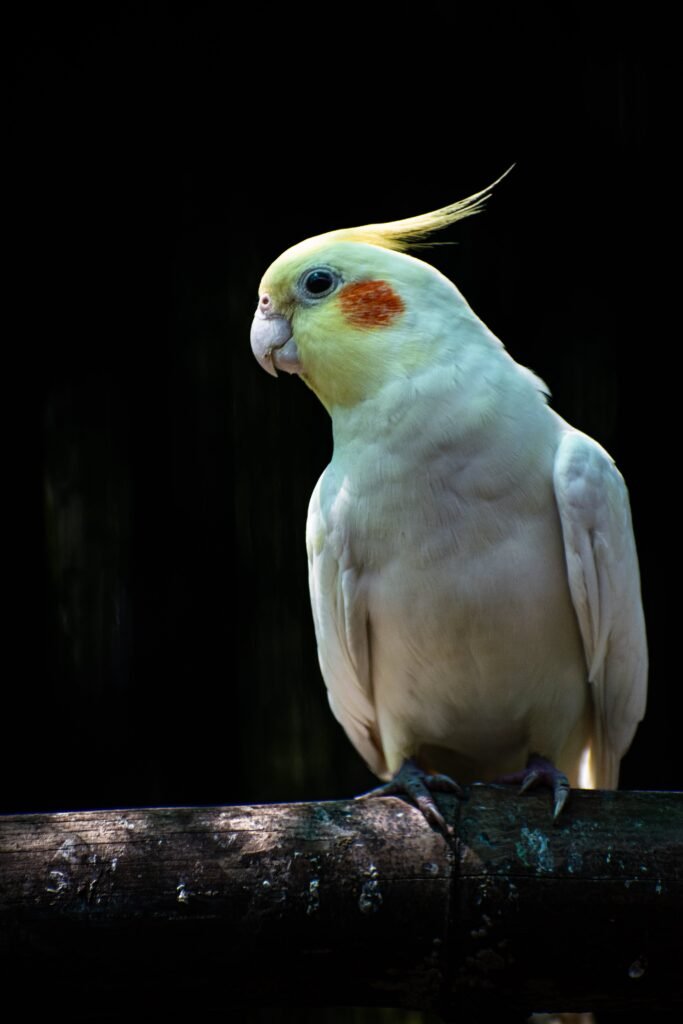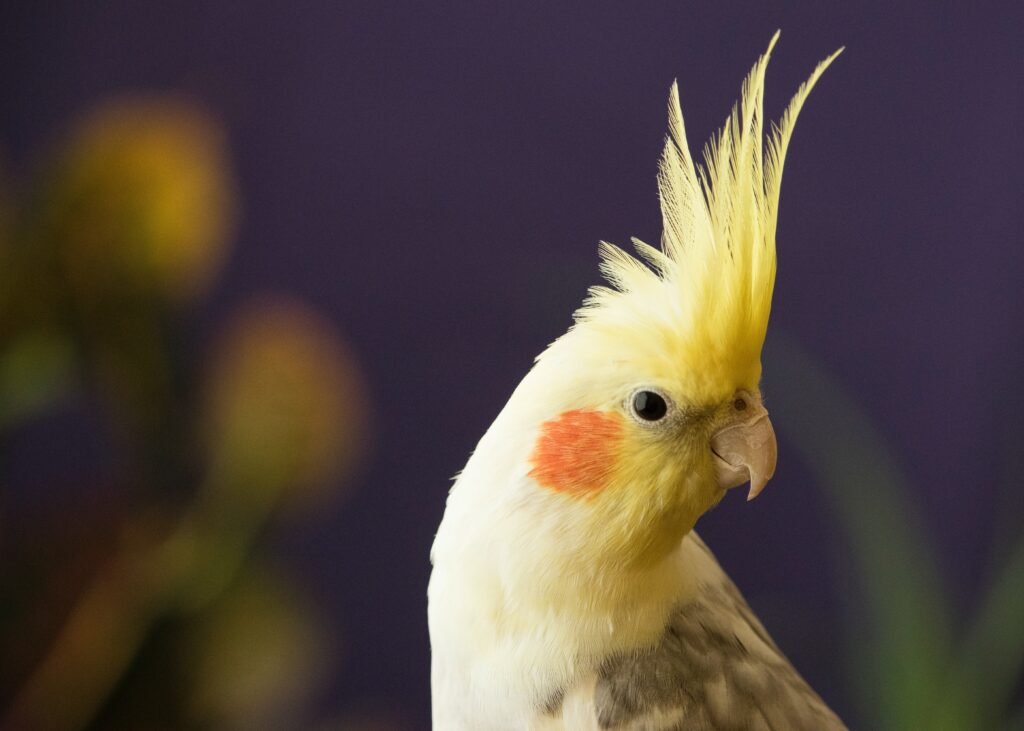
Cockatiels are charming and intelligent birds that make wonderful pets. If you’ve recently become a proud owner of a cockatiel or are considering getting one, it’s important to understand the basics of their care. This step-by-step guide will provide you with all the information you need to ensure your cockatiel lives a happy and healthy life.
Creating a Comfortable Living Space
Creating a suitable living environment for your cockatiel is crucial. Here are some important factors to consider:
Cage Selection
Investing in a spacious and secure cage is essential for your cockatiel’s well-being. The cage should be large enough for them to move around, stretch their wings, and exercise. It should also have horizontal bars for climbing and include a door large enough for easy access.
When selecting a cage for your cockatiel, opt for one made of non-toxic materials. Stainless steel or powder-coated cages are recommended as they are durable and easy to clean. Avoid cages with gaps that are large enough for your bird to get stuck in.
Cage Placement
The location of the cage is important for your cockatiel’s comfort and well-being. Place the cage in an area where your cockatiel can feel like a part of the family, but also have some quiet time. Avoid placing the cage in direct sunlight, as this can cause overheating, and avoid drafts, as they can lead to respiratory issues.
It’s also essential to keep the cage away from the kitchen or any space where toxic fumes may be present. Cockatiels are sensitive to fumes from non-stick cookware, scented candles, and cleaning products. These fumes can be harmful to their respiratory system and should be avoided.
Cage Accessories
Adding various accessories to the cage will help keep your cockatiel entertained and mentally stimulated. Here are some essential accessories to consider:
- Perches: Provide perches of different sizes and textures to promote foot health and exercise. Natural wood perches are recommended as they provide a more comfortable grip for your bird.
- Toys: Cockatiels are curious and playful birds. Offer a variety of toys such as bells, swings, and puzzle toys to keep them engaged and prevent boredom. Toys that encourage foraging, such as treat-dispensing toys or toys with hidden compartments, are especially beneficial.
- Ladders and Swings: Cockatiels enjoy climbing and swinging. Include ladders and swings in the cage to provide additional exercise and entertainment.
- Cuttlebone and Mineral Block: These accessories are important for beak and nail maintenance. Cuttlebones provide a source of calcium, while mineral blocks help keep the beak trimmed.
Nutritious Diet
A well-balanced diet is fundamental for your cockatiel’s overall health. Here’s what to include in their daily menu:
Pellets
High-quality cockatiel pellets should serve as the primary food source for your bird. These pellets are specially formulated to provide all the necessary nutrients for their well-being. Look for pellets that are specifically made for cockatiels and avoid generic bird seed mixes, as they are often low in nutritional value.
Ensure fresh pellets are available at all times and monitor your cockatiel’s consumption. Cockatiels may be picky eaters initially, so it’s important to introduce pellets gradually and offer a variety of flavors to find the ones they prefer.
Fresh Fruits and Vegetables
Supplement your cockatiel’s diet with a variety of fresh fruits and vegetables. These provide important vitamins, minerals, and antioxidants. Some suitable options include apples, grapes, carrots, spinach, and broccoli.
Wash the fruits and vegetables thoroughly and cut them into small, manageable pieces. Remove any uneaten fresh food after a few hours to prevent spoilage. Introduce new fruits and vegetables gradually to allow your cockatiel to adjust to different flavors and textures.
Seeds and Grains
While seeds and grains are a favorite treat for cockatiels, they should be provided in moderation. These foods are high in fat and can lead to obesity and other health issues if overconsumed. Use seeds and grains as occasional rewards or for training purposes.
When offering seeds, opt for a mix specifically formulated for cockatiels. This ensures a balanced combination of seeds and grains. Sprouted seeds are also a nutritious option as they provide additional enzymes and nutrients.
Fresh Water
Access to fresh, clean water is crucial for your cockatiel’s health. Change the water daily, ensuring it is provided in a shallow dish or a water dispenser suitable for their size. Cockatiels may also enjoy bathing in their water dish, so providing a larger dish or a birdbath attachment can be beneficial.
Regularly clean the water container to prevent the growth of bacteria. Avoid using any chemical cleaners or detergents as they can be toxic to birds. Rinse the container thoroughly with hot water and allow it to dry before refilling.
Maintaining Hygiene
Proper hygiene practices are necessary to keep your cockatiel healthy and minimize the risk of diseases. Consider the following:
Regular Cage Cleaning
Cleaning the cage thoroughly at least once a week is essential to maintain a clean and hygienic environment for your cockatiel. Remove all accessories, such as perches, toys, and dishes, and scrub the bars and base with a bird-safe disinfectant.
Ensure the disinfectant is specifically formulated for bird cages, as other cleaning products may be toxic to birds. Rinse everything well with water to remove any residue. Allow the cage and accessories to dry completely before reassembling.
Bathing
Cockatiels enjoy bathing and it helps them maintain clean feathers. Offer a shallow dish of lukewarm water for them to splash around in a few times a week. You can also mist them gently with water using a spray bottle.
Some cockatiels may prefer a specific bathing method, such as bathing under a running tap or in a shallow dish with fresh greens. Observe your bird’s preferences and adjust their bathing routine accordingly.
Nail and Beak Maintenance
Regularly checking your cockatiel’s nails and beak is important for their overall health. If the nails become too long, provide a suitable perch or consult a veterinarian for a nail trim. Avoid cutting the nails too short, as this can cause bleeding.
Cockatiels naturally wear down their beaks through chewing and playing with toys. However, providing a cuttlebone or mineral block will help keep their beak in good condition. These accessories also provide a source of calcium and other essential minerals.
Exercise and Socialization
Cockatiels are active birds and require regular exercise and social interaction. Here’s how you can fulfill these needs:
Flight Time
Allow your cockatiel to have supervised flight time outside of the cage. This provides them with an opportunity to stretch their wings and exercise. Ensure all windows and doors are closed, and that there are no dangerous items in the vicinity that they can chew on.
Supervision is important to prevent accidents or escapes. Create a safe and bird-proofed area for your cockatiel to explore, and provide perches or play gyms outside of the cage for them to rest and play on.
Toys and Enrichment
Providing a variety of toys and puzzles is essential to keep your cockatiel mentally stimulated. Toys that encourage foraging or mimic natural behaviors are particularly beneficial. Rotate the toys regularly to prevent boredom and maintain your bird’s interest.
Some popular toy options for cockatiels include puzzle toys with hidden treats, shreddable toys made of natural materials, and bells or mirrors for auditory and visual stimulation. Avoid toys with small parts that can be swallowed or sharp edges that can cause injury.
Bonding and Training
Spending quality time with your cockatiel every day is important for building a strong bond and promoting their mental well-being. Cockatiels are social birds and thrive on interaction with their human companions. Here are some tips for bonding and training:
- Offer treats: Use small, healthy treats as rewards during training sessions. This positive reinforcement helps reinforce desired behaviors and strengthens the bond between you and your cockatiel.
- Speak gently: Cockatiels respond well to soft and soothing voices. Talk to your bird in a calm and gentle tone to create a sense of security and comfort.
- Engage in training: Teach your cockatiel basic commands or tricks using positive reinforcement training techniques. This not only stimulates their intelligence but also provides mental enrichment.
Veterinary Care
Regular veterinary check-ups are vital to ensure your cockatiel’s health. Find an avian veterinarian experienced in treating birds and schedule annual examinations. During these visits, the vet will conduct a thorough examination, check for any signs of illness, and provide necessary vaccinations.
It’s important to monitor your cockatiel’s behavior and health on a daily basis. Look out for any changes in appetite, droppings, or behavior that may indicate an underlying health issue. Prompt veterinary intervention is crucial in preventing and treating potential health problems.
In conclusion, by following this step-by-step cockatiel care guide, you’ll be well-equipped to provide a happy and healthy life for your feathered friend. Remember to prioritize their well-being, offer a nutritious diet, maintain a clean environment, provide exercise and socialization opportunities, and seek professional veterinary care when needed. With your love and attention, your cockatiel will thrive and become a cherished member of your family.



